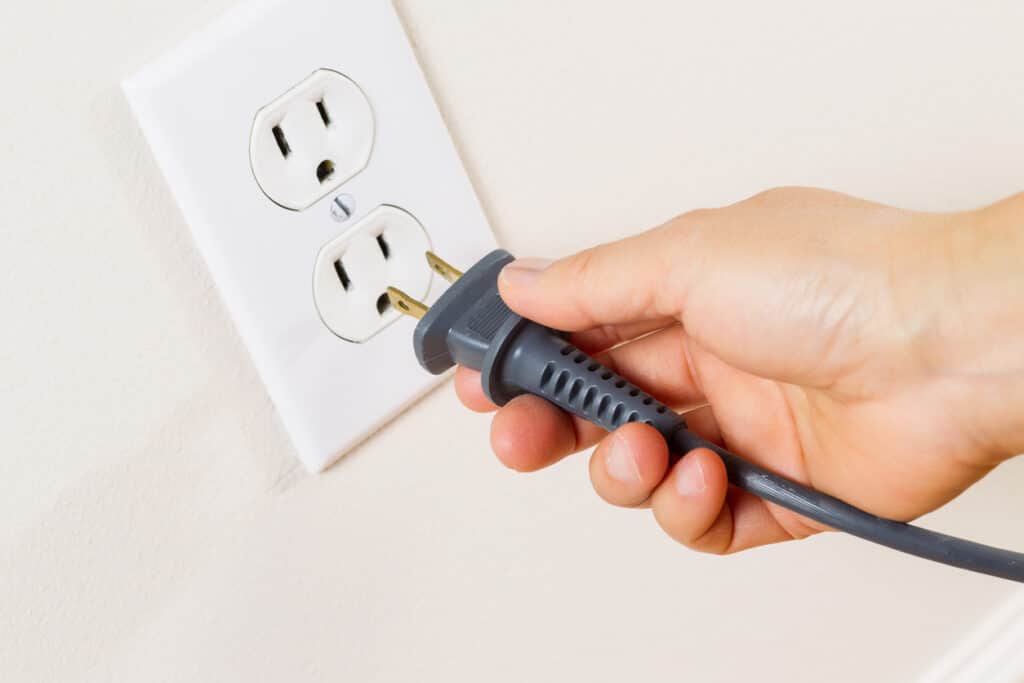To decrease risks associated with your electrical system, be careful when setting things up at home. Be mindful of what you plug in, how much you plug in, and the items that may surround an outlet.
Don’t Overload Your Outlets
It might be tempting to plug many appliances into your outlets, especially if you have a power strip. However, plugging in too many things at once can lead to excess heat, sparks, and power failures. A general rule of thumb is to use one heat-producing appliance, such as a toaster or space heater, in an outlet at one time. These appliances use a considerable amount of power, so they could trip a breaker or damage wiring.
Use Extension Cords Sparingly
Extension cords can be handy in certain situations, but remember that they’ve been designed to be temporary solutions. They shouldn’t be used on a permanent basis. You should also avoid using them with large appliances like dryers, washers, and refrigerators. They might have trouble with the electrical demands placed on them, and this could lead to overheating and potentially electrical fires.
If you’re finding that you often need extension cords, you may want to change the way your electrical system is set up. An electrician can install more outlets for you in convenient locations, including outdoors if necessary.
Keep Water Away From Electricity
You already know that water and electricity can result in a dangerous combination. Be sure that you have GFCI outlets installed in your bathrooms and kitchen. These outlets will shut off power when they detect imbalances in the current, and this can prevent shocks. In addition, keep anything that contains liquid, such as watering cans, fish tanks, and water bottles, away from the vicinity of outlets. Water that has made its way into an outlet can increase the current and lead to short circuits or sparks.
Keep the Air Flowing
Appliances and electronic devices generate heat when they’re running. If things get too hot, there’s the possibility that internal components could get damaged. Wires and outlets can get damaged, too. For this reason, give your appliances and devices some room to breathe. Leave cabinets slightly ajar or have ventilation built in, and keep large appliances, like dryers, at least a foot away from a wall. On that note, you also don’t want to keep flammable materials near outlets, as sparks could potentially fly and cause a fire.
Be Strategic and Think Ahead
There are many ways in which you can significantly reduce safety hazards. You can pay attention to what and how much you plug in, what types of outlets you’re using, and what may be surrounding your outlets and appliances. Being proactive can help you stay safe. If you need any electrical services in Newnan, GA, call E Dennis AC Inc. today for an appointment.




